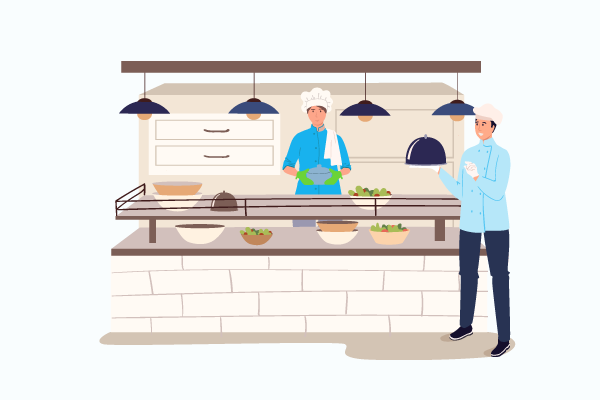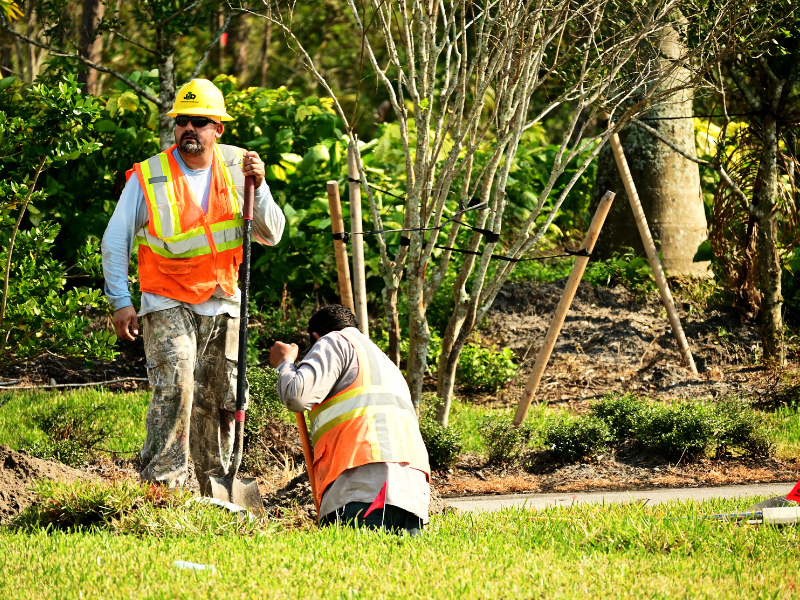Ultimate Guide to Workers’ Comp for Restaurant Owners: Everything You Need to Know
Importance Of Workers’ Compensation For Restaurant Owners
Workers’ compensation is a vital aspect for restaurant owners to consider, as it plays a crucial role in protecting both their employees and the business itself.
In the fast-paced and dynamic world of restaurants, workplace injuries and accidents can unfortunately occur.
That’s why this blog aims to serve as a comprehensive guide to workers compensation, specifically tailored for restaurant owners.
By delving into the intricacies of workers’ comp, we will shed light on its importance and provide valuable insights to help restaurant owners navigate this complex realm.
From legal requirements to common claims, we’ve got you covered. So, let’s dive in and ensure that your restaurant is well-equipped to handle any unforeseen circumstances while prioritizing the safety and well-being of your valued employees.
Workers Comp Legal Requirements for Restaurant Owners
Restaurant owners must be aware of the specific legal requirements surrounding workers’ compensation.
Each state has its own regulations and mandates, and it is essential to comply with these laws to avoid penalties and legal issues.
From obtaining proper insurance coverage to accurately classifying employees, understanding and meeting these legal requirements is crucial for restaurant owners.
Specific Risks and Challenges Faced by Restaurant Owners: The restaurant industry presents unique risks and challenges when it comes to workplace injuries and illnesses.
Slip and fall accidents, burns, cuts, and repetitive strain injuries are common occurrences in the fast-paced restaurant environment.
Additionally, restaurant employees may be exposed to occupational hazards such as respiratory issues due to fumes or food-related allergies.
By recognizing these specific risks and challenges, restaurant owners can proactively implement safety measures and secure appropriate workers’ compensation coverage to safeguard their employees and business.
Benefits of Workers' Compensation Insurance for Restaurant Owners
Workers’ compensation insurance offers a range of invaluable benefits for restaurant owners, ensuring the well-being of both employees and the business.
Firstly, it provides essential protection against workplace injuries and illnesses that can occur in a bustling restaurant environment.
In the event of an accident, workers’ comp coverage steps in to cover medical expenses, including treatments, surgeries, and rehabilitation.
It also extends support by compensating employees for lost wages during their recovery period, easing financial burdens for both the injured employee and the business.
Moreover, workers’ comp includes legal liability coverage, safeguarding restaurant owners from employee claims and potential lawsuits.
This coverage not only protects the business’s reputation but also helps mitigate the financial impact of legal proceedings.
With these benefits in place, restaurant owners can focus on running their establishment with confidence, knowing that their employees are protected and their business is shielded from potential liabilities.
Common Workers Comp Claims in the Restaurant Industry
In the fast-paced and often demanding restaurant industry, several types of workers’ compensation claims are more prevalent than others.
A. Slip and fall accidents at work
One common claim involves slip and fall accidents, which can occur due to spills, wet surfaces, or uneven flooring.
B. Burn injuries at work
Burn injuries are another frequent occurrence, given the presence of hot surfaces, open flames, and hot oil in the kitchen.
C. Cuts and lacerations at work
Cuts and lacerations are also common due to the use of sharp knives and other kitchen tools.
D. Repetitive strain injuries at work
Additionally, restaurant workers may suffer from repetitive strain injuries caused by repetitive motions, such as chopping or lifting heavy objects.
E. Occupational illnesses at work
Lastly, occupational illnesses can arise from exposure to harmful substances or poor ventilation, leading to respiratory issues and other health concerns.
Being aware of these potential risks allows restaurant owners to implement safety protocols, provide adequate training, and secure comprehensive workers’ compensation coverage to protect their employees and address these common industry-specific claims effectively.
Tips for Obtaining Affordable Workers Compensation Coverage
A. Properly classifying employees and job roles:
To obtain affordable workers’ compensation coverage, it’s crucial for restaurant owners to accurately classify their employees and job roles.
This ensures that the insurance premiums are based on the appropriate risk levels associated with each position, preventing potential overpayment or underpayment.
B. Implementing safety protocols and training programs:
Creating a safe working environment is not only essential for the well-being of employees but also for reducing insurance costs.
By implementing robust safety protocols and providing comprehensive training programs, restaurant owners can mitigate the risk of workplace injuries and demonstrate their commitment to employee safety, which can lead to lower workers’ comp premiums.
C. Working with an experienced insurance provider:
Collaborating with an experienced insurance provider who specializes in workers’ compensation for the restaurant industry is invaluable.
These experts understand the unique risks and challenges faced by restaurant owners and can help tailor coverage options to meet specific needs.
By leveraging their knowledge and expertise, restaurant owners can secure competitive rates and appropriate coverage for their establishments.
D. Managing claims effectively to mitigate costs:
When accidents occur, effective claims management is essential for mitigating costs.
Promptly reporting incidents, documenting details, and cooperating with insurance carriers can help streamline the claims process.
Additionally, implementing return-to-work programs that facilitate employees’ safe and timely return to their duties can reduce the duration of claims and associated expenses.
By following these tips, restaurant owners can increase their chances of obtaining affordable workers’ compensation coverage while prioritizing safety, reducing risks, and effectively managing claims to minimize costs.
When faced with a workers’ compensation claim, it’s important for restaurant owners to take the following steps to ensure a smooth and efficient process:
- Reporting the incident promptly:
As soon as an incident occurs, it is crucial to report it promptly to the appropriate channels within the organization.
This includes notifying supervisors, managers, or designated personnel responsible for handling workers’ comp claims.
Timely reporting helps establish a clear timeline and aids in initiating the claims process promptly.
- Seeking medical treatment for the injured employee:
The health and well-being of the injured employee should be the top priority.
Restaurant owners should ensure that the injured employee receives prompt and appropriate medical attention.
This may involve providing immediate first aid on-site or arranging for them to visit a healthcare professional.
Encouraging and facilitating timely medical treatment not only supports the employee’s recovery but also helps establish a record of the injury.
- Documenting the incident and gathering evidence:
Documentation plays a critical role in supporting a workers’ comp claim.
Restaurant owners should thoroughly document the details of the incident, including the date, time, location, and any witnesses present.
Additionally, gathering evidence such as photographs, videos, or any other relevant information can help provide a comprehensive account of the incident and strengthen the claim.
- Cooperating with insurance carriers and legal representatives:
Throughout the claims process, it is important for restaurant owners to cooperate fully with their insurance carriers and legal representatives.
This includes providing all necessary documentation, responding to inquiries, and attending any required meetings or hearings.
Open and transparent communication with all involved parties helps facilitate a smoother claims process and ensures that all relevant information is considered.
By following these steps, restaurant owners can effectively navigate the workers’ compensation claim process, support their employees’ well-being, and work towards a fair resolution.
Taking prompt action, documenting incidents, and maintaining open communication will contribute to a more efficient and satisfactory outcome for all parties involved.
Ongoing Compliance and Review of Workers’ Comp Policies
Restaurant owners must ensure ongoing compliance with workers’ comp policies to maintain a safe work environment.
This involves regular policy review and updates, conducting safety inspections, and training employees on safety protocols.
Prioritizing compliance reduces risks, mitigates hazards, and fosters a culture of safety.
Conclusion:
In conclusion, workers’ compensation holds immense importance for restaurant owners, ensuring the safety and protection of both employees and the business itself.
By prioritizing the well-being of employees and securing proper workers’ comp coverage, restaurant owners can create a secure work environment and foster the success of their business.
Remember, when it comes to navigating the complexities of workers’ comp, it’s always beneficial to consult with insurance experts who can provide personalized advice and guidance.
With their expertise, restaurant owners can make informed decisions and safeguard their employees and business effectively.




